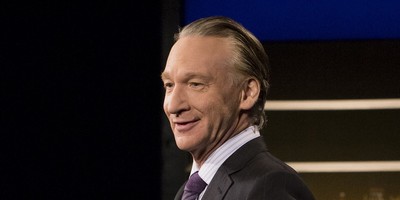WASHINGTON - President Obama's last gasp strategy in this year's midterm elections is to paint the Republicans in Congress as obstructionists, accusing them of playing politics with America's economic welfare.
In his news conference last week, he insisted he had offered a number of new proposals to boost low-to-middle incomes, create jobs and strengthen the economy. But, he said, they had been stubbornly blocked by Republicans in the House and Senate.
In Obama's deeply partisan world, there aren't two sides to the legitimate policy issues that now divide Congress. There's only one side: his side. And anyone who opposes him and his party is doing it solely for political gain.
That's the whining, lame-duck message he's taking out on the campaign trail this fall in a rear-guard political bid to prevent the GOP, which now runs the House, from getting control of the U.S. Senate, too.
But Obama faces huge challenges with his petulant, sophomoric complaints. First and foremost, a majority of Americans no longer look to him as the answer to the many economic problems that still plague our country.
He's had five and a half years to get the economy fully back on track, but with very mediocre results at best, and that's why his job approval polls are among the lowest of his presidency.
A growing number of Americans no longer believe that he can ever deliver on his promises and with good reason.
Take family incomes. They've fallen from $55,600 in 2007 to $51,000, while the gap between families at the top and the bottom has widened.
About one-third of Americans have debts that were sent to collection firms, according to a new report last week by the Urban Institute and Encore Capital Group's Consumer Credit Research Institute.
Recommended
"It's a stunning number. And it threads through nearly all communities," said Caroline Ratcliffe, senior fellow at the Urban Institute, who wrote the report.
It was also reported just last week that homeownership fell to a 19-year low in the last three months, as shrinking incomes and tighter finances forced more Americans into rentals. That's the lowest U.S. homeownership level since 1995.
Yet, in a speech at a Democratic fundraiser last month, Obama was boasting, with a straight face, that "There's almost no economic measure by which we are not better off now than we were when I took office."
A hefty majority of Americans know better. The Gallup Poll said last week that 57 percent of Americans now say the economy is getting worse.
At his news conference last week, Obama ran through a litany of long-ignored proposals he's sent to Congress, including the Democrats' widely-discredited idea of raising the minimum wage.
When Republicans gave it an immediate thumbs down, saying his proposal was dead on arrival because it was "a job killer," the White House accused the GOP of playing politics with the issue.
Obama is still peddling the idea in speeches, despite a study by the nonpartisan Congressional Budget Office that said his minimum wage hike would eliminate between half a million and one million jobs, as small businesses would be forced to cut their payrolls just to survive. The president never mentions the CBO report.
Obama is having a very difficult time accepting divided government as an often necessary part of our democratic, two party system of competing political philosophies. In large part, because he has been unable to get his way, but also because he believes government is the solution to all of our problems, when, as President Reagan reminded us in his first inaugural address to the nation, "Government is the problem."
Congress is divided, as it's often been throughout our history, because the American electorate is deeply divided. This election isn't about petty politics. It is about the proper role of government in our society and whose policies will result in a prosperous, full employment economy and a wise and frugal government.
Obama, judging by all the polls, is on the losing side of that argument. And his constant complaints that he can't get what he wants out of Congress because of mean, old Republicans, looks immature.
Ronald Reagan swept into office with an agenda that called for lowering income tax rates across the board, beefing up our tattered defenses, expanding global trade, and cutting needless, wasteful and excessive spending.
Reagan faced a fiercely determined foe in House Speaker "Tip" O'Neill and a liberal Democratic majority. But instead of bemoaning the opposition, he formed alliances on Capitol Hill, rallied Americans to his cause, and won the legislation he needed to pull the country out of a deep recession in just two years.
He faced similar Democratic opposition in his second term against his plan to overhaul the tax code, clean out its needless loopholes and exemptions, and further lower the tax rates.
Reagan not only got much of what he wanted, he did it with the support of liberal Democrats like Rep. Richard Gephardt of Missouri and Sen. Bill Bradley of New Jersey.
Reagan came into office after two successful terms as governor of California. Obama took office with virtually no experience after just two years as a freshman senator who had never run anything. And it shows.
Reagan and his army of allies on Capitol Hill, led by tax cut crusader Jack Kemp, said they got their tax cut ideas from President John F. Kennedy whose tax cuts resulted in a decade of strong economic growth and, eventually, a budget surplus.
Obama drew his $800 billion big spending stimulus plan and higher taxes from FDR's New Deal agenda to pull the country out of the Great Depression which lasted 10 long years until we entered World War II.
Obama has nearly two and a half years left to prove his policies will work. So far, they haven't.
























Join the conversation as a VIP Member